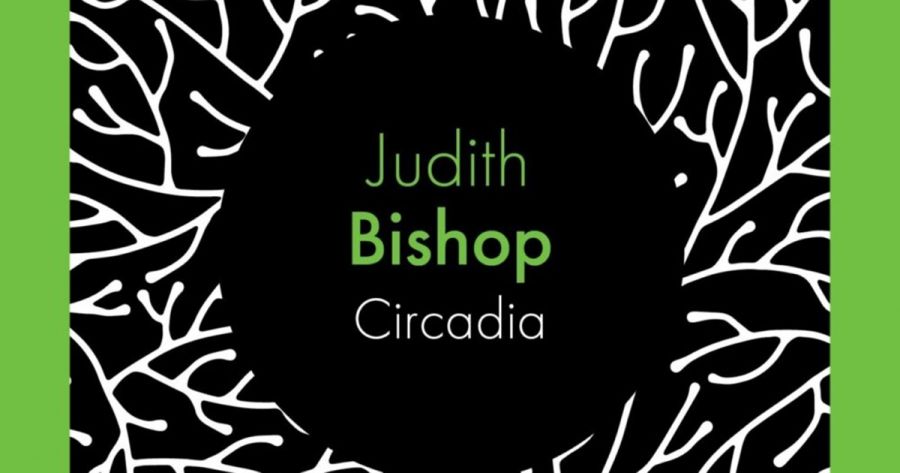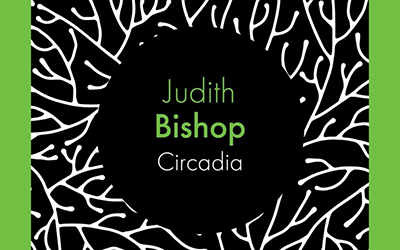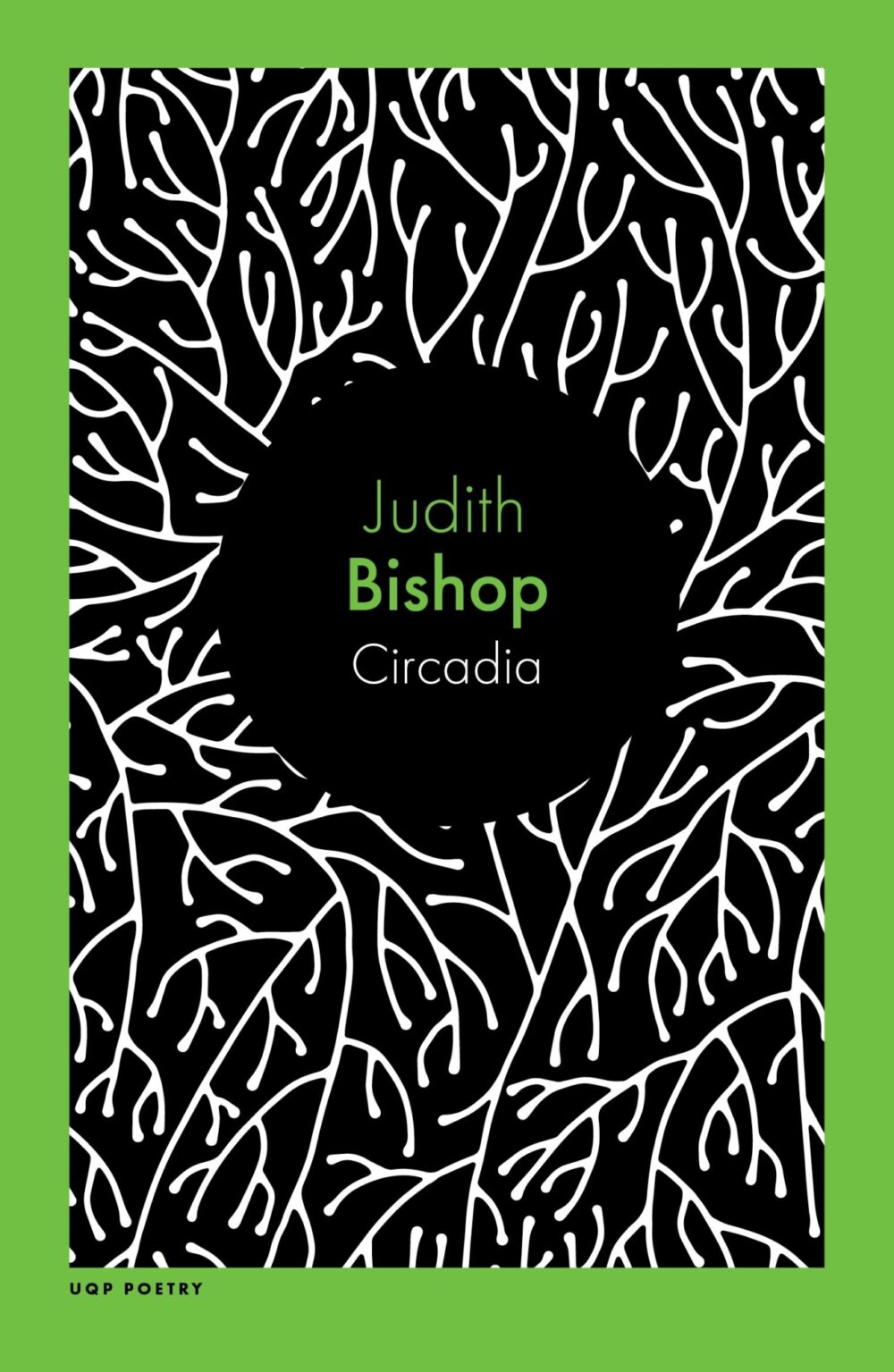
- Free Article: No
- Contents Category: Poetry
- Review Article: Yes
- Article Title: Songs unfolding
- Article Subtitle: The completion of Judith Bishop’s trilogy
- Online Only: No
- Custom Highlight Text:
In Poetry’s Knowing Ignorance, Joseph Acquisto borrows a definition of poetry from Phillipe Jaccottet: ‘that key that you must always keep on losing’. Attempting to know its subject, poetry reveals that there is always more to know. But the French poet’s metaphor, for Acquisto, does not mean ‘simple contingency’. It suggests ‘a complex play of certainty and doubt … that actively resists coming to a conclusion’. We might say that poetry expresses the friction in human experience between time and permanence.
- Featured Image (400px * 250px):

- Alt Tag (Featured Image): Anders Villani reviews ‘Circadia’ by Judith Bishop
- Book 1 Title: Circadia
- Book 1 Biblio: University of Queensland Press, $24.99 pb, 78 pp
- Book 1 Cover Small (400 x 600):

- Book 1 Cover (800 x 1200):

Circadia completes a trilogy that includes Event and Interval (2018). The word is Bishop’s, a combination (as she states in the Notes) of ‘circadian’ (the daily rhythms of life) and Arcadia, the name of an idyllic district described in Virgil’s Eclogues. Its meaning recalls a couplet in Interval: ‘and both of us desiring, / and both of us in time’ (‘Aubade’). Desire is the search for contact. Time is difference and death. In Circadia, Bishop spotlights this clash of forces by opening the first section with ‘Sein und Zeit’. ‘We can walk into a room not knowing’, she writes. Not knowing what? Bishop answers: ‘Only you will know.’ In this neutral space, ‘the talk begins, / like a reckoning of beads’. This is opaque poetry, subject without object. But from the title we can infer mortality, or the knowledge of our death – Heidegger’s ‘uttermost possibility of existence’. Do we accept death with desire? Do we go on ‘not knowing’? Either way, we ‘carry … its moment’, the fallout of our choice (maybe the room is the mind, an attitude) ‘in and out of days’.
Throughout the book, Bishop holds death’s gaze, which means confronting the urge to deny it. The speaker watches her daughters ‘listen to an inner song’: ‘To start to see how taking turns / applies to life is harrowing’ (‘Improvisation’). In ‘Leadbeater’s Possum’, Bishop addresses the critically endangered species: ‘I cannot touch / the night – let alone that night, / the last on earth, that is calling from your face.’ This ‘last night’ is extinction. The speaker scrambles to save a dying animal, and her panic – ‘I was out of my wits I was holding the box’ – evinces the collection’s most overt fear of death. What emerges from this fear is presence: ‘You are on the earth now / Grip the bark of the world’. In the next poem, the addressee ‘search[es] for the Baw Baw frog’ and finds that ‘…[t]he ones for whom you came still exist: they are here: here’ (‘Voices’). The crucial recurrent word in Event is ‘skein’, denoting complexity; in Circadia, we repeatedly meet ‘earth’ and ‘here’.
Circadia’s five sections feature several poems titled for their date and time: ‘Evening / 23 June 2022’. This is striking specificity for a poet who uses few proper nouns – who writes, according to critic Oliver Dennis, ‘as if she had been born anywhere’. While the poems withhold particularising details, their temporal markers invite context. ‘Morning / 14 June 2020’ begins: ‘– So I walked away / and broke the glass / in which we listened to each other / were within each other / as rain disappears / into the earth.’ Glass appears elsewhere as a ‘fold’ precluding union: ‘As if / the black window / at the solitary pass / from I to this / (or you or now) / could let a human mind / slip through the glass …’ (‘Harbour’). In ‘Morning’, though, the union has taken place. But intimacy brings erasure. The speaker must ‘br[eak] the glass’.
Bishop lives in Melbourne. Couples who lived together in that city on the poem’s date, during the Covid-19 lockdowns, will know this dynamic. Elsewhere, ‘The Forest’ shifts between hesitancy – the repetition of ‘there could be someone’ – and confidence – ‘can you hear it now’ – to depict a landscape where thoughts, bodies, insects, and ‘a steel box’ orbit one another as ‘signals’. The possible ‘someone’ keeps returning to ‘the always-fleeing thought of fleeing / the always-being of their own country’. How near ‘fleeing’ is to ‘being’, in sound and life. Bishop’s fusion of presence and absence reminds me of another French poet she has written about, Yves Bonnefoy. From his ‘Theatre’: ‘What seize but what escapes, / What see but what is darkened, / What desire but what dies, / Speaks and is torn apart?’ The date below ‘The Forest’, 23 February 2022, marks the eve of the invasion of Ukraine.
Doves, a child in a Superman costume, artists from Barbara Hepworth to Rainer Maria Rilke to Zao Wou-Ki; wind: Bishop’s subjects range, but her ear and intelligence carry. These poems, sometimes hermetic, never admit a flat note. Amid their layered rhetoric glow unforgettable lines: ‘Gesture is the / accident of love – / its naked speech’ (‘Recital’); ‘feel the flesh quiver / like a bell at its root’ (‘Portraits of the Future’). In ‘On Leaving’, the simple refrain, ‘Lift and go’, which opens three of five sections, belies the poem’s ecstatic rendering of departure, if any leaving, even thought to thought, is metonymic of time, of death. Enjambment and caesura make this process felt:
Lift and go:
but there is something so
weightless and invisible it parries all lunges
and undoes acceleration, sending puzzles to the limbs
instead of orders …
As much as Bishop’s trilogy is about time, it is in time. The sixteen-year project records her transition from young adulthood into parenthood and, by Circadia, ‘a middle-aged body, romancing myself’ (‘Portraits of the Future’). Four of the book’s last five poems address her children. In ‘Music Lessons’, Bishop writes: ‘Singing was forbidden me / (in bed or in the car) – / your infant ear was offended / or emotion overrun / when I raised my voice to give you / not a story / but a song’. But the speaker soon fights this injunction: ‘I would come to you to talk / but it’s late, let me come to you to sing.’ This is a mother singing to her children. It is also a poet, mortal, seeking a key, ‘the strongest antidote to fear, / the songs unfolding in our minds / their fugitive reproof to time’ (‘Improvisation’). ‘The deepest listening, the ear of imagination,’ writes Denise Levertov, ‘rejects all … that fails to sing in some way’.
Bishop reserves one of the collection’s, and the trilogy’s, most virtuosic moves for the final poem. She lets time speak. What it says is too moving to quote.


Comments powered by CComment